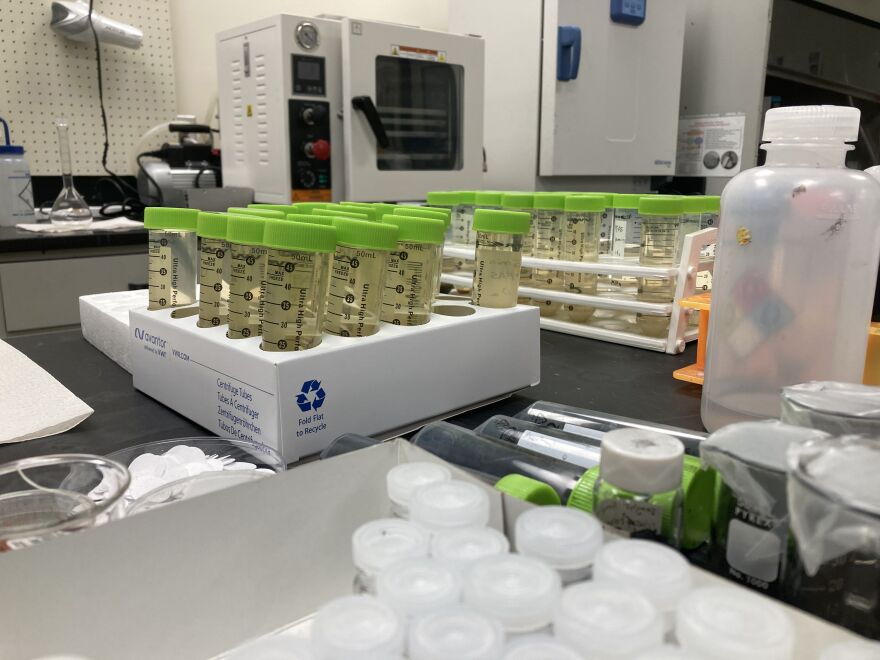A new federal estimate says more than 20% of the U.S. population relies on groundwater that may be contaminated with toxic “forever chemicals.”
The U.S. Geological Survey estimates up to 95 million people could be drinking groundwater with detectable levels of PFAS, according to a study published in the journal Science.
The research includes an interactive map that predicts the presence of PFAS in groundwater across the country.
Andrea Tokranov, the study's lead researcher and a hydrologist with the USGS, told WCMU the map will NOT tell residents on private wells if their water is contaminated, but it is meant to identify regions that may have some levels of PFAS.
"Spots with high predicted probability of occurrence — that's a result of eight different combinations of variables that our model considered (such as) urban land use, well depth, soil type, distance to the nearest PFAS source," Tokranov said.
A previous USGS study estimated that at least 45% of the nation's tap water had some levels of PFAS. Tokranov said that study included surface water sources and PFAS measurements at the tap, but the latest research was focused soley on groundwater prior to any drinking water treatment.
Tokranov said she hopes future models can incorporate different PFAS levels to gauge the severity of contamination better.
"The only way to truly confirm if there is PFAS in the water supply is to actually test for it," Tokranov said. "We hope that this model is used to guide sampling for the future."
The federal government enacted protections against six PFAS chemicals in public water systems earlier this year.





